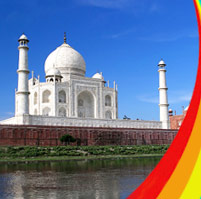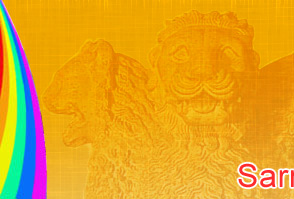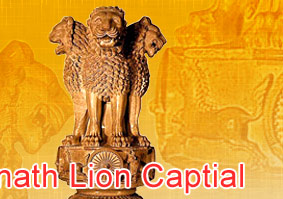The National Emblem of India is an adapted version of
the Lion Capital of Ashoka at Sarnath. The Government of India adopted
the Emblem on January 26, 1950. The original Ashoka Lion Capital
comprises four lions, standing back to back, mounted on a cylindrical
abacus. The abacus features the sculptures of an elephant, a galloping
horse, a bull, and a lion, separated by 24-spoked Dharma wheels over a
bell-shaped lotus.
However subtle changes have been incorporated while adopting the Lion
Capital of Ashoka as India's National Emblem. In the Emblem only three
lions are visible, the fourth one on the rear is hidden from view. The
Dharma wheel is present in the centre of the abacus with a bull on right
and a horse on left and the outlines of other wheels on extreme right
and left. The bell-shaped lotus has been done away with.
The words 'Satyameva Jayate' which literally means 'Truth Alone
Triumphs' are inscribed below the abacus in Devanagari script. The words
are quoted from Mundaka Upanishad, the concluding part of the sacred
Hindu Vedas. The national emblem is prominently featured in the official
letterhead of the Government of India and also appears on the diplomatic
and national Passport of the Republic of India.
Read for information on the Lion Capital of Ashoka, the national emblem of India.
Colors of India: Lion Capital : Lion Capital of Ashoka: The National Emblem of India









